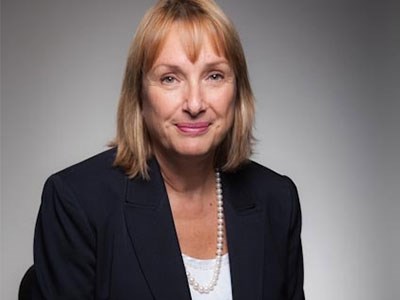With shaky world markets and low commodity prices, mining companies are having a hard time raising capital for their exploration projects. But the Ontario Securities Commission (OSC) is working to allay investor fears by adjusting regulations to offer a measure of protection.
Mineral extraction has always been a risky investment; development takes lots of time, huge capital, and knowledgeable people running the show. But Canada is also looked upon as having the best mining oversight system in the public markets, because of its standardized reporting regulations, said Maureen Jensen, executive director and chief administrative officer at the Ontario Securities Commission (OSC).
“For companies that are existing under this regime, it’s more onerous than many other places in the world,” Jensen said. “But investors come from all over the world to invest in companies here because they know what they’re reading is accurate, and they know what they’re reading is done in a professional way and it can be compared to all the other companies here.”
Jensen was in Sudbury in March to talk to Laurentian University mining students about the role the OSC plays in helping businesses raise the capital they need to get projects underway. And she can offer firsthand experience.
The daughter of a mining engineer at Falconbridge, Jensen was born and raised in Sudbury before moving to Europe and, later, Toronto. Educated as a geologist, she spent 20 years in the business, working in exploration and spending time underground before moving into regulation.
Her first task? Rewrite the mining rules following the Bre-X scandal, in which investors were tricked into investing capital in a fraudulent gold mineralization.
While she misses the days of working in the field, Jensen also recognizes the significance of her role heading the province’s securities regulator.
With the 2008 stock market crash, regulators realized markets have changed, but regulations haven’t changed with them. Private markets have grown more than public markets, and more retail investors are starting to invest in those areas, Jensen said.
Figures from 2011 show that $51.5 billion was raised on the public markets in Canada, but in the exempt, or unregulated, market, $143 billion was raised. Of the $143 billion raised in Canada on the exempt market, $86 billion was raised in Ontario alone, so there’s lot of money being raised and not all on stock markets, Jensen said.
“We’re trying to make sure that the regulations that we put in place, or the ones we change slightly, that we’re going to do it in a way that investors feel protected and they feel like they have a chance at making money,” Jensen said. “It’s not just the pros that can make the money in the market.”
The OSC has a number of checks and balances in place to help guide investors. The Office of the Investor does policy work, research and analysis with a focus on investor needs and concerns, while the Investors Advisory Panel studies the rules published by the OSC and critiques them. The Investor Education Fund funds educational programming; it’s fuelled by monies collected through enforcement. And public education is needed.
Too often, she noted, people invest in things they don’t understand from people they don’t know, putting their money in areas that are too risky for them, all because they want a bigger return.
“When the markets are flying, doing really well, everyone can make 6, 7, 8, 9 per cent,” Jensen said. “But in markets like today, you can’t make that, unless you are very, very selective and you’re willing to take on some more risk.”
Instead, she advises people to go for investments that see their return built up slowly over time, so that they’re only taking the risks they’re willing to lose on.
“If someone ever says to you, ‘I’m going to guarantee you 10 per cent every year and you’ll never lose,’ run.”




